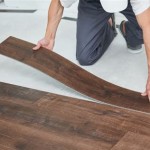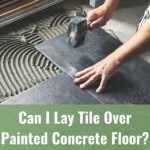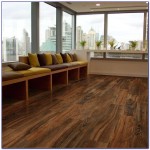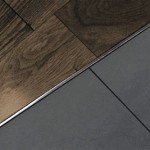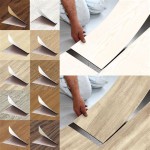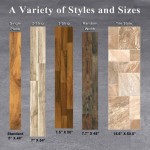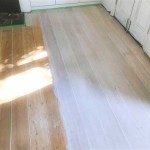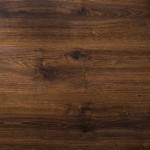Can You Lay Vinyl Sheet Flooring On Concrete?
Vinyl sheet flooring offers a durable, water-resistant, and cost-effective solution for various spaces. Its resilience makes it a popular choice for areas prone to moisture and heavy traffic. One common question regarding vinyl sheet installation concerns its compatibility with concrete subfloors. This article explores the feasibility and important considerations of laying vinyl sheet flooring directly onto concrete.
Concrete as a Subfloor for Vinyl Sheet
Concrete provides a stable and robust foundation for many flooring types, including vinyl sheet. Its inherent strength and rigidity offer a level surface, minimizing the risk of flexing and buckling in the vinyl over time. However, concrete's susceptibility to moisture and temperature fluctuations requires careful preparation before laying vinyl sheet flooring.
Essential Preparation Steps for Concrete Subfloors
Proper preparation is crucial for successful vinyl sheet installation on concrete. Several steps ensure a smooth, moisture-resistant base that promotes the longevity of the flooring.
Firstly, the concrete surface must be thoroughly cleaned and free of any debris, dust, paint splatters, or old adhesive residue. A thorough cleaning with a strong detergent and appropriate cleaning tools is necessary. Any remaining adhesive can be scraped off using a floor scraper. After cleaning, the floor should be allowed to dry completely.
Secondly, any cracks, chips, or imperfections in the concrete slab should be addressed. Minor cracks can be filled with a concrete patching compound, while larger imperfections may require more extensive repairs. Leveling the floor is crucial, as uneven surfaces can cause the vinyl to wear unevenly and create tripping hazards. Self-leveling concrete compounds can be used to create a smooth and even surface. Allow ample drying time for any patching or leveling compounds before proceeding.
Finally, addressing moisture is paramount when installing vinyl sheet flooring over concrete. Concrete is porous and can absorb moisture from the ground, leading to issues like mold, mildew, and adhesive failure. Applying a moisture barrier is a critical step. This can be achieved by using a specialized concrete sealer or a moisture-resistant underlayment designed for vinyl flooring. These products create a barrier between the concrete and the vinyl, preventing moisture from migrating into the flooring.
Moisture Mitigation: A Critical Factor
Moisture is a significant concern when installing any flooring material over concrete, especially vinyl. Concrete can absorb moisture from the ground, which can then transfer to the vinyl, potentially causing warping, bubbling, and adhesive failure. Several methods can be employed to mitigate moisture issues. These include:
Testing the concrete's moisture content is the first step. This can be done using a calcium chloride test or a relative humidity test. These tests determine the amount of moisture present in the concrete and inform decisions regarding appropriate moisture mitigation strategies.
Installing a vapor barrier or moisture retarder is often necessary. These materials create a barrier between the concrete and the vinyl, preventing moisture from seeping into the flooring. Vapor barriers come in various forms, including sheet membranes, liquid sealers, and specialized underlayments.
Choosing the right underlayment can also contribute to moisture control. Some underlayments are specifically designed to offer moisture resistance in addition to providing cushioning and sound insulation. These underlayments are often recommended for concrete subfloors prone to moisture.
Types of Vinyl Sheet Flooring Suitable for Concrete
While many types of vinyl sheet flooring can be installed over concrete, some are better suited than others. Consider the following factors:
Fiberglass-backed vinyl sheet flooring offers superior dimensional stability and resistance to moisture, making it a good choice for concrete subfloors. This type of vinyl is less likely to expand or contract with temperature and humidity changes.
Felt-backed vinyl can also be used on concrete, provided that adequate moisture mitigation measures are in place. However, felt is more susceptible to moisture damage than fiberglass, so careful consideration of the moisture conditions is crucial.
Adhesive Considerations
Choosing the correct adhesive is essential for a successful installation. The adhesive should be compatible with both the vinyl flooring and the concrete subfloor. Pressure-sensitive adhesives are commonly used for vinyl sheet flooring, but some manufacturers may recommend specific adhesives for concrete applications. Consult the manufacturer's instructions for adhesive recommendations and proper application techniques.
In summary, vinyl sheet flooring can be a suitable and cost-effective flooring solution for concrete subfloors, provided that proper preparation and moisture mitigation measures are implemented. By addressing the specific characteristics of concrete and choosing appropriate materials and installation methods, a durable and attractive floor can be achieved.

Concrete Subfloor Preparation For The Vinyl Floor Installation How To Diy Mryoucandoityourself

How To Lay Sheet Vinyl Flooring

Lvp Flooring Installation Over Concrete Subfloor Full Instructional Builds By Maz Flooret

Tips For Installing Vinyl Plank Over Concrete Floors Lemon Thistle

Vinyl Plank Flooring On Uneven Concrete

What Is Loose Lay Vinyl Flooring A Plank Guide Reallyfloors America S Est Hardwood

How To Install Vinyl Or Laminate Floors In A Basement Over Concrete Slab

How To Lay Sheet Vinyl Flooring Installation 2024 Full Guide

How To Lay Sheet Vinyl Ideas Advice B Q

Step By Guide To Seam Sheet Vinyl Like A Pro
See Also
